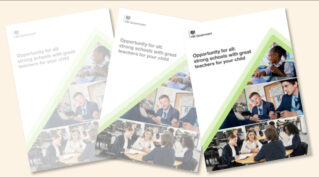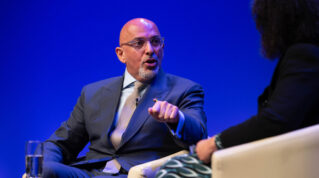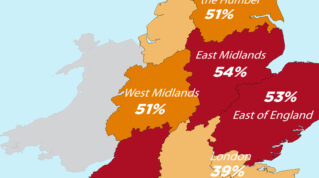School leaders are constantly enjoined to set a culture of high expectations for their pupils. Sadly, the emphasis applied by the Department for Education when it comes to pupils and teachers does not seem to extend to them.
Both the DfE and Ofsted sprinkle the commandment to have high expectations for all pupils in all guidance and all regulatory frameworks. In practice, these expectations are to be communicated through curriculum, standards of behaviour, presentation of work, teaching, assessment, and academic ambition.
It is difficult to argue against this emphasis because high expectations are the starting point for meaningful educational progress. It is necessary to have a target, an ideal, a standard to measure progress and achievement. Low expectations for certain kinds of pupils or groups of pupils are, as is sometimes asserted, a form of bigotry and a limitation of the educational journey.
Yet, the recent schools white paper, which sets out how the government proposes to develop a state-funded school system in which all headteachers work in the context of a multi-academy trust makes a crystal-clear calculation. Almost all MAT models provided by the government as case studies are led by a CEO who directs the work of several so-called local headteachers and their local governing bodies.
This policy of MAT-isation and its concomitant and dominant CEO model is a surrender to lowered expectations for the headteachers of this country.
It is the government essentially despairing of the quality of self-directed and professional leadership in individual schools, and rather lamely and suddenly surrendering after many years of seeking to raise expectations of headteachers as the leaders of their schools.
This policy is a model of infantilised line management
Raising standards is now simply a matter of asserting that headteachers need a boss, a CEO, who will make sure their schools improve and to whom they will be accountable. Ofsted by proxy.
Such a strategy of lowering expectations is strictly forbidden to teachers and headteachers, yet promoting this line-management model is clearly based on the belief that – left to their own devices or bound to each other in mutual support – headteachers will not improve their schools at the rate or the pace required. They need, in the words of our new secretary of state, “constant attention” and “constant pressure”.
What’s more, the government is so convinced by this that they are willing to put aside their chief policy obsession: ‘value for money’. Effectively, ministers have come to a view that giving headteachers a higher-paid manager and boss is a worthwhile investment.
The equivalent policy in a profession such as medicine would require consultants to report to a CEO consultant and take direction from them in diagnosing and treating patients. Architects would need to report on their designs, their plans, and their buildings to a CEO architect. This policy is not about sharing best practice among equals or about the organic emergence of systemic leadership: it is about a predetermined model of infantilised and de-professionalised line management.
This policy may indeed be effective, but it nevertheless marks a clear vote of no confidence in the headteachers of this country who still report to governors and not a CEO. (It isn’t a show of confidence in governing bodies either.) It implies their practice has not been good enough. It makes them managers of franchises rather than captains of a king’s ship. It reduces them by lowering expectations of them.
It is based on a calculation that there are not enough good leaders able and interested in leading individual schools as single and distinctive institutions under their care and leadership.
This may very well be true, and the policy prove to be a wonderful way forward. But nothing of quality has ever been achieved by lowering expectations, so its success would be unique in that regard. Either way, it is most definitely not part of a culture of high expectations or independent learning. The things we expect of pupils we will not need to expect from headteachers.
















[…] Hans Broekman […]
I agree with this article. The disempowerment of Headteachers as they are forced into becoming heads of schools is a dangerous move. Overpaid CEOs taking on a large number of schools that they have no understanding of can only weaken schools rather than strengthen them. I agree their will be schools where the leadership is in some way lacking but treating all schools as failing schools is hampering good leaders to do what they know is needed to suit an external agenda.